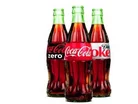Cancer fears force Coke and Pepsi to change recipes

Coca-Cola Co and PepsiCo have been forced to change the recipe of their products after studies have found a caramel colouring ingredient they use has links to cancer.
Both the soft drinks companies have chosen to alter the ingredients used to make Coke and Pepsi drinks rather than attaching cancer-warning labels to their packaging.
The move was initially done to comply with Californian laws, after 4-methylimidazole was added to the state’s list of carcinogens.
Amended drinks have already been introduced in California and now the manufacturers say they will roll out the changes across the whole of the US to streamline their production processes.
To read the latest edition of Healthcare Global, click here
- O2 launches mobile health service ‘Help at Hand’
- £10m donated to fight neglected tropical diseases
- ‘Cure’ for rheumatoid arthritis shows promise in trial
Although Coca-Cola and Pepsi will continue to use the 4-methylimidazole (4-MI) chemical in their products, they will reduce the amount they use.
Studies carried out by the Center for Science in the Public Interest (CSPI) detected unsafe levels of the chemical in Coca-Cola, Pepsi Cola, Dr Pepper and 365 Cola.
However, the American Beverage Agency is claiming that 4-MI poses no risk to humans, despite a link being found between itself and cancer in rodents.
"Consumers will notice no difference in our products and have no reason at all for any health concerns," a statement released by the organisation read.
These claims are being supported by the US Food and Drug Administration (FDA), although it is reviewing a petition from the CSPI to ban the chemical.
FDA spokesperson, Doug Karas, said: “A consumer would have to consume well over a thousand cans of soda a day to reach the doses administered in the studies that have shown links to cancer in rodents.”
Meanwhile, while talking the news agency Press Association, Coca-Cola representative Diana Garza-Ciarlante added: “While we believe that there is no public health risk that justifies any such change, we did ask our caramel suppliers to take this step so that our products would not be subject to the requirement of a scientifically unfounded warning.”
Sales of Coca-Cola and Pepsi products together make up approximately 90 percent of the fizzy drinks market in the US.
The Healthcare Global magazine is now available on the iPad. Click here to download it.



